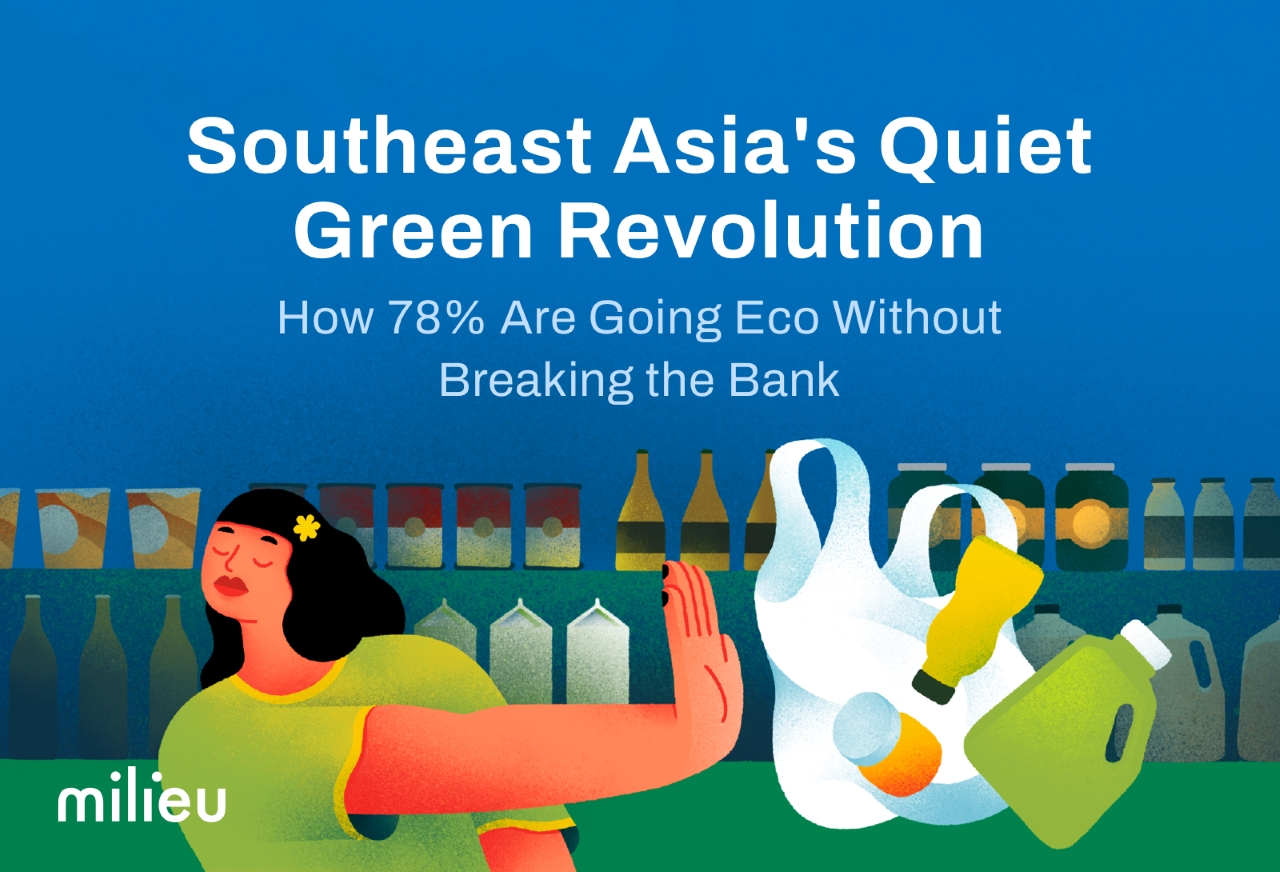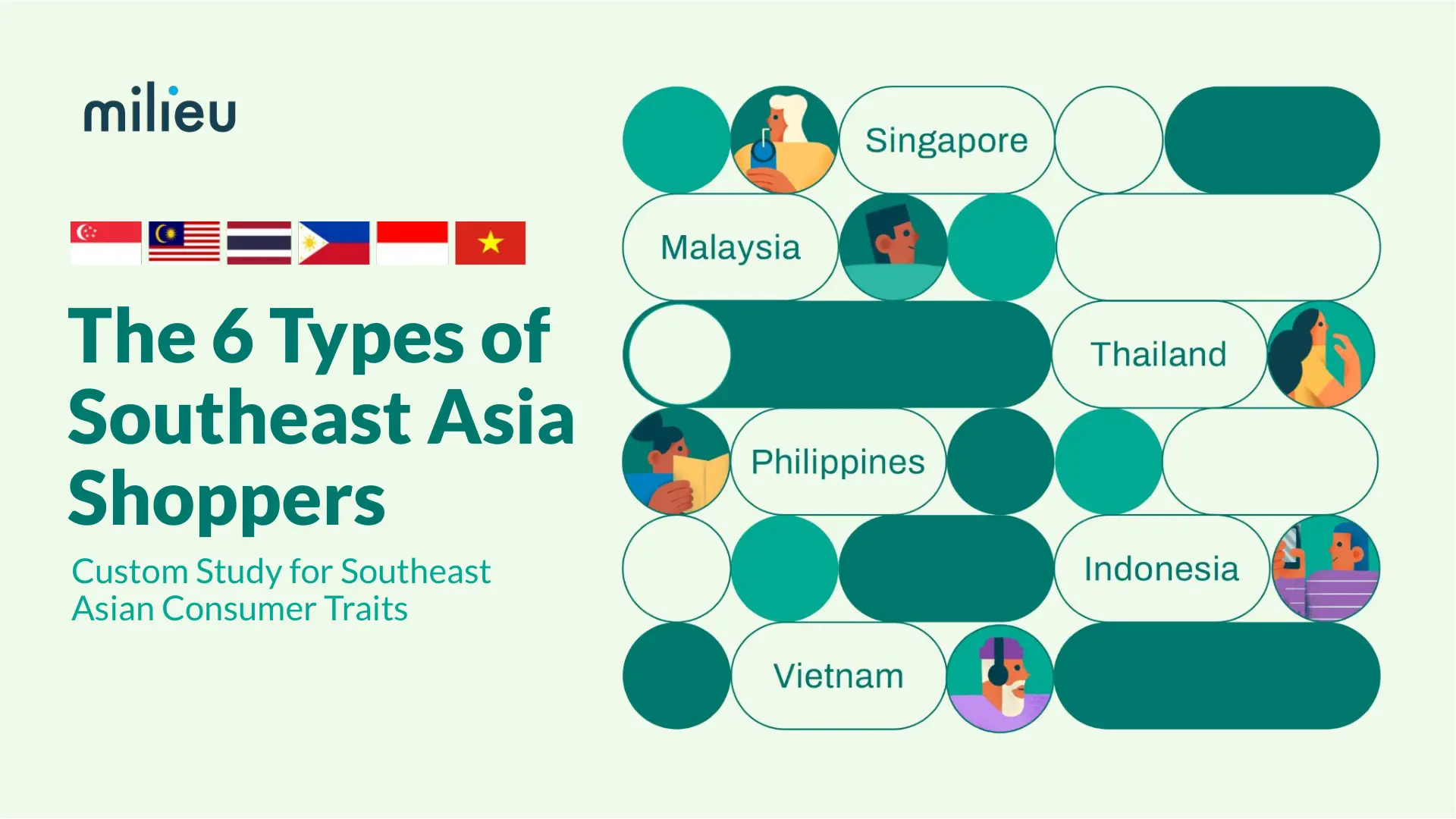Thai Consumers Are Increasingly Value-Conscious, Seeking Smarter and More Seamless Shopping Experiences

Thailand stands out in Southeast Asia for the frequency of online purchasing, with Milieu Insight’s latest study showing that 87% of consumers shop online weekly or monthly. Online retail is now embedded in how Thais browse, compare, and buy – not simply a convenience.
However, market growth does not necessarily translate into satisfaction. Our latest study (N=500) reveals that while price remains an important motivator, Thai consumers are placing greater emphasis on trust, delivery reliability, and overall shopping experience in determining where they choose to shop and which sellers or platforms they return to.
Price Drives Purchase, But Value Sustains Loyalty
Thailand’s e-commerce market is shaped by a competitive three-platform landscape: Shopee remains the most used platform (89%), while TikTok Shop (71%) and Lazada (66%) now play equally influential roles in shaping the online purchase journey.
When examining Thai consumers’ motivations, discounts (73%) and free or low-cost shipping (73%) continue to anchor purchase decisions, reflecting a highly value-conscious consumer base. By reducing the impact of rising delivery costs, free or subsidized shipping helps shoppers feel less financial pressure and more confident in completing their purchases. Yet affordability alone is no longer decisive. Wide product selection (45%) and trusted customer reviews (39%) now play increasingly important roles in reinforcing confidence, indicating that Thai consumers are evaluating cost alongside credibility and assurance.
The market has shifted from being purely price-driven to value-driven, emphasizing that while cost still matters, consumers are no longer willing to trade trust or reliability for lower prices.
Logistics Remains the Core Friction Point in the E-Commerce Experience
As e-commerce booms and digital adoption deepens, the pressure has shifted onto last-mile fulfilment. Delivery performance continues to be the primary pain point, with 79% of shoppers having encountered delivery-related issues over the past year — most commonly slow shipping (44%), delays beyond the promised window (35%), damaged or missing items (28%), or receiving the wrong product (25%).
These issues directly shape repeat behaviour. Nearly half (46%) avoid the same seller after a negative delivery experience, and 15% switch to an entirely different platform. Meanwhile, 44% continue purchasing but with reduced trust and increased caution.
When asked what needs improvement, consumers are clear: faster delivery, better package handling, greater reliability, and fairer delivery fees. Interestingly, 70% of shoppers stated that they do not care about the courier brand itself, focusing instead on whether their delivery expectations are met, and only 15% said the name matters. Further, an overwhelming majority (93%) expect platforms to enforce logistics standards across speed, consistency, and cost, and hold courier companies accountable when expectations aren’t met.
The gap between consumer expectations and fulfilment readiness is widening. But this accountability also presents opportunity: 84% of Thai consumers are willing to pay more for better delivery performance — indicating that reliability holds commercial value even within a price-sensitive market.
Enhancing the Shopping Experience: Thais Pay for Peace of Mind
Consumers reward consistency. 86% repurchase when sellers provide timely updates and proactive communication, and 47% increase spend when deliveries are reliably fast. This shows that positive service experiences directly translate into greater purchase volume, not just good sentiment.
However, tolerance for perceived unfairness is low. Hidden fees prompt cart abandonment (56%), unclear return terms cause hesitation (34%), and products without reviews are avoided (50%). Similarly, 58% stop buying from sellers who fail to deliver on time or provide flexible, secure payment options — reinforcing that trust and clarity are baseline requirements for continued purchasing.
It’s interesting to note the two emerging consumer archetypes that shape the Thai market:
- Bargain Seekers who respond strongly to flash deals and subsidized shipping.
- Value Optimizers who prioritise transparency, reliability, and service — even at a slightly higher price.
Crucially, as service quality and clarity improve, spending increases. Recent return/refund experiences were rated positively by 96% of shoppers — and those satisfied shoppers are significantly more likely to repurchase and spend more with the same seller. In other words, when platforms reduce uncertainty and maintain clear, fair policies, buyers reward them with loyalty and higher transaction value.
Despite rising delivery fees prompting 53% to reduce online shopping frequency, 56% remain loyal to platforms that offer consistent and fair overall value. Reliability and transparency increasingly outweigh small price differences — demonstrating a clear commercial effect: when platforms deliver peace of mind, consumers not only stay, they spend more.
Innovation Pays Off When It Builds Confidence and Control
Thai consumers embrace innovation when it makes shopping feel easier and more assured. The features gaining traction today — Buy Now Pay Later (BNPL), one-click checkout, self-service returns, and livestream commerce — aren’t being adopted just because they’re new. They’re valued because they make the journey smoother, clearer, and more reassuring.
BNPL illustrates this well. With 41% having used it and 44% saying it encourages increased spend and repeat purchase, BNPL shows how accessibility directly impacts commercial outcomes. One-click checkout (35%) similarly reduces drop-off by removing unnecessary steps at the point of purchase.
Self-service return/refund portals (34%) are reshaping perceptions of reliability. When shoppers can resolve issues with minimal friction, trust strengthens, and loyalty follows. Livestream shopping (27%) is also emerging as a trust-building environment — real-time demonstration reduces doubts that static product pages can’t.
Crucially, personalisation is becoming a central expectation. Over half of Thai shoppers trust platforms that offer tailored recommendations, and many now discover new products through AI-driven suggestions and creator-led livestreams. These tools do more than simplify decision-making; they enable the e-commerce ecosystem to become more intelligent and responsive, adapting dynamically to consumer behavior and preferences. Interest in AR and AI try-ons reflects a desire for digital tools that help validate choices, not just entertain. Together, these innovations are helping Thailand’s e-commerce market evolve from simple transactions into an experience-driven, confidence-led environment that rewards trust, insight, and adaptability.
Fairness and Accountability Are Becoming Critical to Loyalty
Return and refund experiences are generally positive, with 96% of recent users reporting satisfaction. Yet concerns about fairness persist. Nearly half (45%) have switched platforms due to perceived unfair treatment, and 42% believe platforms prioritise sellers over buyers. This signals a growing awareness that platforms are not only marketplaces, but arbiters of fairness.
Trust depends not only on the policies themselves, but on how consistently and transparently they are applied. When buyers feel protected — clear refund terms, responsive issue resolution, and visible seller accountability — confidence increases. This confidence drives behaviour: 87% prefer to purchase from high-rated sellers with clear buyer protection guarantees, and 51% say good service directly increases how frequently they buy. In short, assurance translates into spend.
Conversely, when fairness is in doubt, consumers withdraw. Hesitation rises, basket sizes shrink, and platform switching increases — even if prices remain competitive. The emotional cost of uncertainty is now commercially significant.
Strong buyer protection is therefore not just a customer service function — it is a commercial differentiator. Platforms that make fairness visible and enforceable retain users longer, encourage repeat purchasing, and convert browsing into higher-value transactions. Confidence is the driver: when buyers feel safe, they not only stay — they spend more.
What Platforms Need to Prioritize in Thailand
1. Make delivery reliability non-negotiable
Delivery performance directly influences repeat purchasing. Platforms need to set, monitor, and enforce logistics standards across all courier partners — because reliability is now a core value driver, not just an operational metric.
2. Eliminate hidden costs
Upfront clarity on pricing and delivery fees reduces hesitation and cart abandonment. Transparency is a trust signal, and trust drives conversion.
3. Strengthen buyer protection and dispute fairness
Consumers stay loyal when they feel protected. Clear policies, consistent enforcement, and visible resolution pathways reduce uncertainty and increase purchase frequency.
4. Invest in convenience-first innovation
Innovation should remove friction, not add features for the sake of novelty. Faster checkout, simpler returns, and more intelligent recommendations help buyers feel more in control — and more confident in every transaction.
5. Reward good service, not just sales volume
When platforms highlight reliable and well-reviewed sellers, buyers find what they trust faster — improving conversion and ecosystem-wide satisfaction.
Thai online shoppers are value-conscious, discerning, and increasingly intentional in how they spend. They will pay for reliability, clarity, and confidence — but only when platforms demonstrate these consistently. Removing uncertainty and reinforce trust will not only drive transactions — it will secure loyalty, increase lifetime value, and strengthen their position in one of Southeast Asia’s most competitive digital markets.

Author
Milieu Team
At Milieu, we’re a team of curious minds who love digging into data and uncovering what drives people. Together, we turn insights into stories—and stories into action. We also run on coffee, deadlines, and the occasional meme.
Latest Insights

.avif)




